Sir Nicholas Winton, a True Hero of the Holocaust
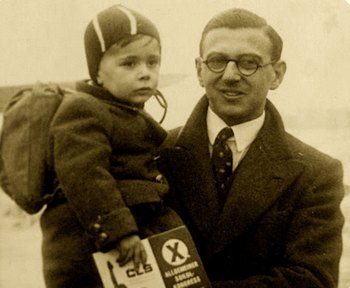
When Nicholas Winton received an invitation to attend a recording of the popular British TV show, That’s Life, in 1988, he was probably thrilled. That’s the kind of man he was. He was probably excited that someone had thought of him and extended an invitation to go and see the show being recorded. And so there he was, a few weeks later, in the audience, enjoying the show’s usual batch of various segments, when suddenly Esther Rantzen started the next one … and he realised it was something about him.
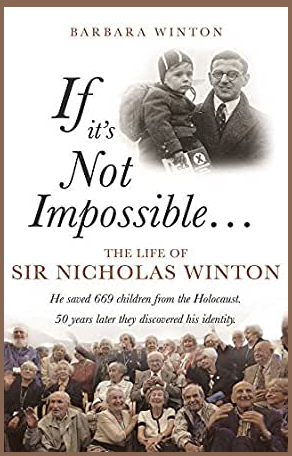
She described how he had been a young man way back in the 1930s, just before the outbreak of World War II, and how he had been about to go on a skiing holiday. That never happened though, because he had been contacted by a friend of his, Martin Blake, who was in Prague and was working for the British Committee for Refugees from Czechoslovakia. He asked if Nicholas could help. That’s all it took. The skiing holiday was off, and so was Nicholas … off to Prague to help out. If there was anything he could do to help Martin’s work, he was eager to do it, with barely a second thought.
A few days later he was in Prague, and with a few other volunteers he was organising the extradition of children of Jewish parents. They desperately needed their children to get safely out of the country, and Nicholas and his friends began doing whatever was necessary to get them to Britain, and fostered by British families.
How Nicholas Winton became a forger!
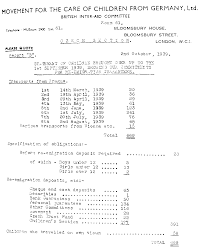 With no training whatsoever, and with only his wits to keep him safe, Nicholas came up with a plan. He ‘created’ a sort of charitable trust (completely phoney) that was in charge of the situation (all done with completely made up letters and references) and with the backing of that paper-thin outfit he arranged transport, food, false papers and temporary housing for the children until he could get them on trains and planes on their way to safety.
With no training whatsoever, and with only his wits to keep him safe, Nicholas came up with a plan. He ‘created’ a sort of charitable trust (completely phoney) that was in charge of the situation (all done with completely made up letters and references) and with the backing of that paper-thin outfit he arranged transport, food, false papers and temporary housing for the children until he could get them on trains and planes on their way to safety.
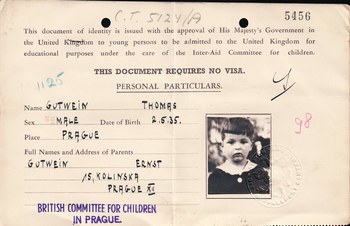 Esther described how he managed to save well over 600 of these children, who would otherwise have been in danger of being killed. And she brought out a huge scrapbook filled with details of all the children, including the list of the families that had taken them in. The scrapbook had only recently come to light, and Nicholas had barely mentioned his wartime exploits since they took place.
Esther described how he managed to save well over 600 of these children, who would otherwise have been in danger of being killed. And she brought out a huge scrapbook filled with details of all the children, including the list of the families that had taken them in. The scrapbook had only recently come to light, and Nicholas had barely mentioned his wartime exploits since they took place.
In the scrapbook there was even an official letter there from Britain saying how sorry they were that the last batch, of 250 children, could not be transported, as such work was being discontinued due to the current situation. Britain had to withdraw from the situation. You see, war had just broken out between England and Germany.< >
He kept careful records, but told no-one
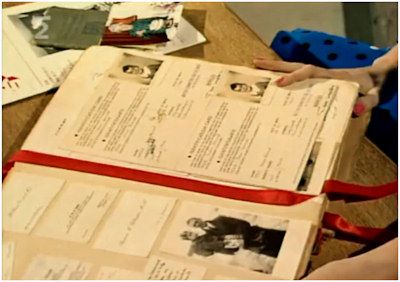
Esther carefully showed pages of the scrapbook, with little composites of photos of several small groups of the children, together with details of where they were placed. Everything Nicholas had done had been carefully documented. And then kept secret, even from his nearest and dearest.
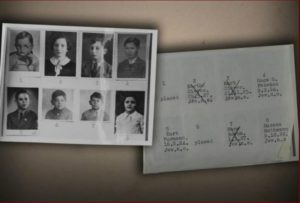
She said Nicholas’s only regret was that he couldn’t save more children. That last batch, 250 children, weren’t able to travel out of the country because the Germans had taken over and put a stop to it. This haunted him for the rest of his life, this feeling of ‘guilt’ almost, that he had failed. But he hadn’t failed, he’d managed to save well over 600 children, when other people, and even entire nations, looked on and shook their heads morosely and muttered that nothing could be done.
She then said she’d managed to trace one of these children, one of the ones he’d saved. The camera picked him out in the audience. And, she said, we managed to find three more. Again the camera picked them out, smiling, in the audience.
They were eager to thank him for saving them
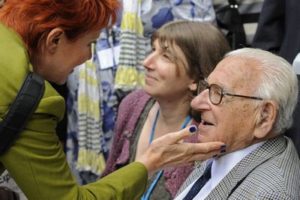 She then showed a photo of a 10-year-old child and said the programme had managed to contact her so she could thank Mr Winton in person. The camera picked her out … she was sitting right next to the man who had saved her seventy years earlier. In a heartbreaking scene, she took his hand and reached over and kissed him, thanking him personally, at long last, for saving her, and for her entire life. It brought tears of joy to Mr. Winton’s eyes.
She then showed a photo of a 10-year-old child and said the programme had managed to contact her so she could thank Mr Winton in person. The camera picked her out … she was sitting right next to the man who had saved her seventy years earlier. In a heartbreaking scene, she took his hand and reached over and kissed him, thanking him personally, at long last, for saving her, and for her entire life. It brought tears of joy to Mr. Winton’s eyes.
Esther introduced another child, now grown up, who had been rescued by Mr. Winton. He was sitting close by and reached over to shake Mr. Winton’s hand and thank him. It was beginning to be quite a night for Mr Winton, who was visibly emotional. Yet another child, now a grown woman, was introduced and thanked Mr. Winton. She still had the little name tag that she wore around her neck as a scared little child starting out on her rescue journey, all those years ago.
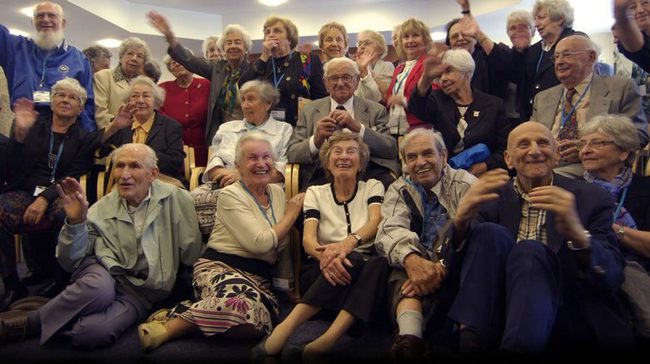
Nicholas was clearly shaken by the events of the evening. As Esther Rantzen said, she knew he hadn’t done it for thanks, but she was sure he’d get some warm thanks before the evening was over. By now, her guest was struggling to hold back tears. Later (the next show, I think) he was a guest again, and he was once again shocked, this time when Esther Rantzen revealed that the show had researched and reached out to more people that he had saved. She asked them to stand up and virtually the entire audience stood, as one. Mr. Winton stood and turned round, astonished to see so many people standing.
Generations owe their lives to this man
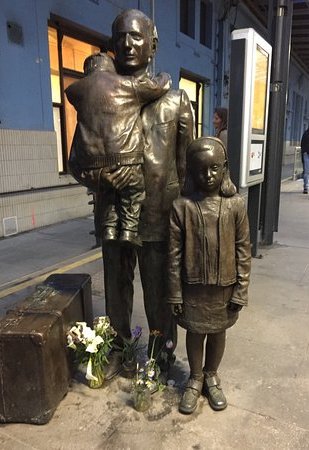
Because of his actions so very long ago, more than 660 children were saved from the gas chambers, and they now had children of their own, and many of them had grandchildren. This one man’s work had saved an entire generation, and more. It is estimated that there are about 6,000 people alive now because of Nicholas Winton, and they refer to themselves proudly as Nicky’s Children.
Perhaps we should all, each one of us, ask ourselves, would we have acted the way Nicholas Winton did? Would we even have recognised the gravity of the situation facing those families, and those children? And would we have dared put ourselves in danger to help them?
Or would we perhaps have said, hey, sorry, I’d like to help, I really would, but I’m just off on a skiing trip? That would have been so easy for him to do. He could have just turned away from the desperate plight that faced those families. After all, nearly everyone else had already done exactly that.
But he didn’t. He did the difficult thing. The thing that took true compassion and fortitude. And the bravery to put himself in personal danger. It’s true what they say, not all superheroes wear capes. Some look very ordinary and carry on with their lives, saying barely a word about what they’ve done and seeking no approbation or reward for it.

Sorry ... MEMBERS ONLY!
UNLOCK FOR FULL EXERCESS!EXERCESS is an online community of people who want to seriously improve their health and fitness, both mental and physical.
JOIN FREE TODAY!
… and get complete and unfettered access to an absolute goldmine of valuable information.
Already a member? Sign in!
